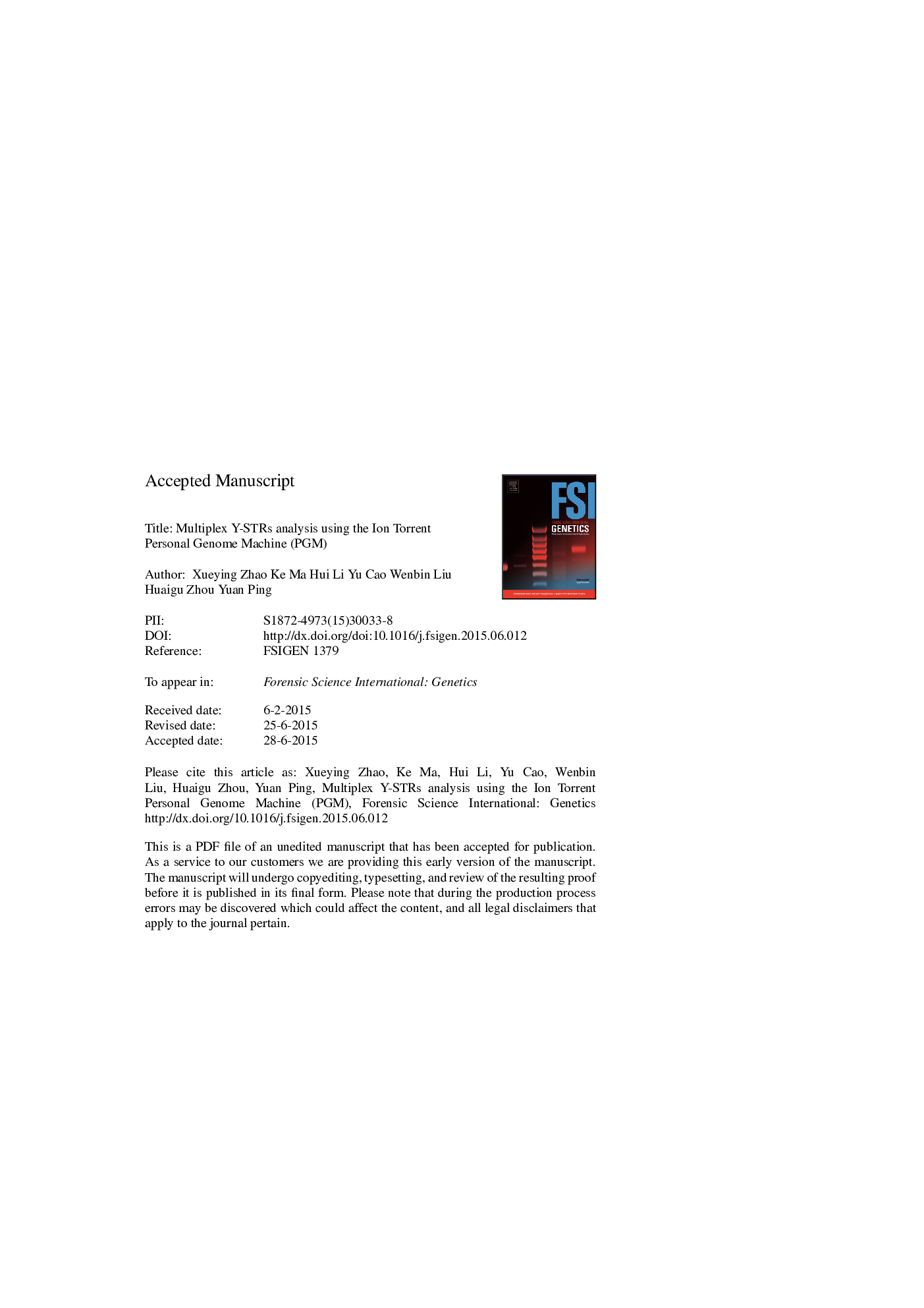| Article ID | Journal | Published Year | Pages | File Type |
|---|---|---|---|---|
| 6553694 | Forensic Science International: Genetics | 2015 | 12 Pages |
Abstract
Massively parallel sequencing (MPS) technologies allow parallel sequencing analyses of many targeted regions of multiple samples at desirable depth of coverage. Routine use of MPS for forensic genetics is on the horizon. In this study, we explore the application of MPS technology in forensic Y-STR analysis. We designed a multiplex assay with 13 Y-STR loci (DYS19, DYS389 I, DYS389 II, DYS390, DYS391, DYS392, DYS437, DYS438, DYS439, DYS448, DYS456, DYS635, GATA-H4) for the purpose of MPS. The multiplex Y-STR assay was amplified in 42 unrelated male individuals and amplicons were sequenced simultaneously using the ion torrent personal genome machine (PGM) system. All loci were detected successfully, except for DYS389 II that exhibited a failure rate of 1.8% due to the relatively long amplicon sizes. We observed 7, 3, 2, 6 and 5 new alleles, respectively in DYS389 II, DYS390, DYS437, DYS448 and DYS635 due to the presence of sub-repeat composition differences, and a new allele in DYS438 because of nucleotide substitution. One allele of DYS390 was inconsistent with allele call from conventional capillary electrophoresis (CE) because of 4Â bp deletions upstream of the core repeat unit. This study demonstrates that Y-STR typing by MPS can provide more genetic information, holding the promise for high discriminatory power.
Related Topics
Life Sciences
Biochemistry, Genetics and Molecular Biology
Genetics
Authors
Xueying Zhao, Ke Ma, Hui Li, Yu Cao, Wenbin Liu, Huaigu Zhou, Yuan Ping,
